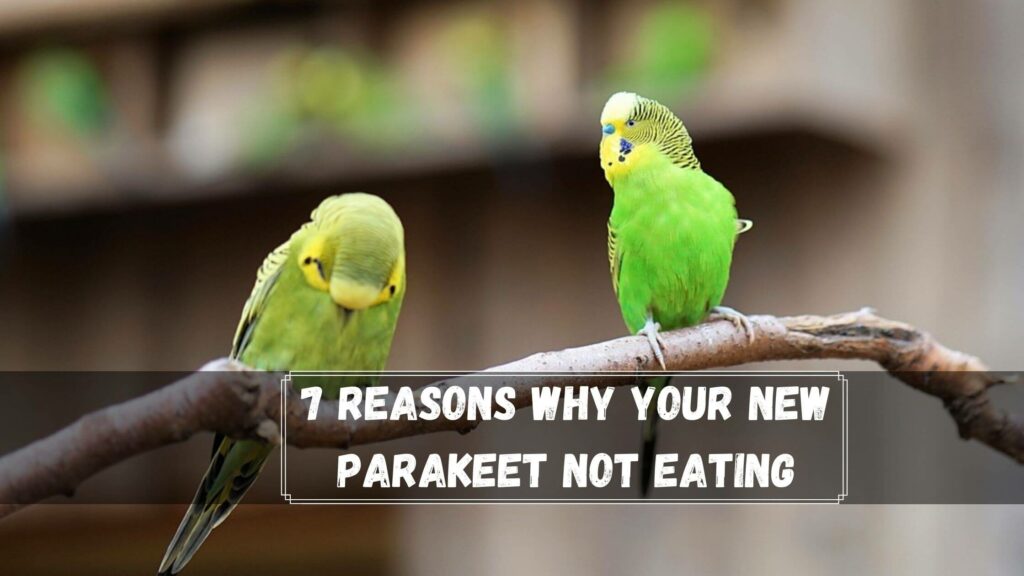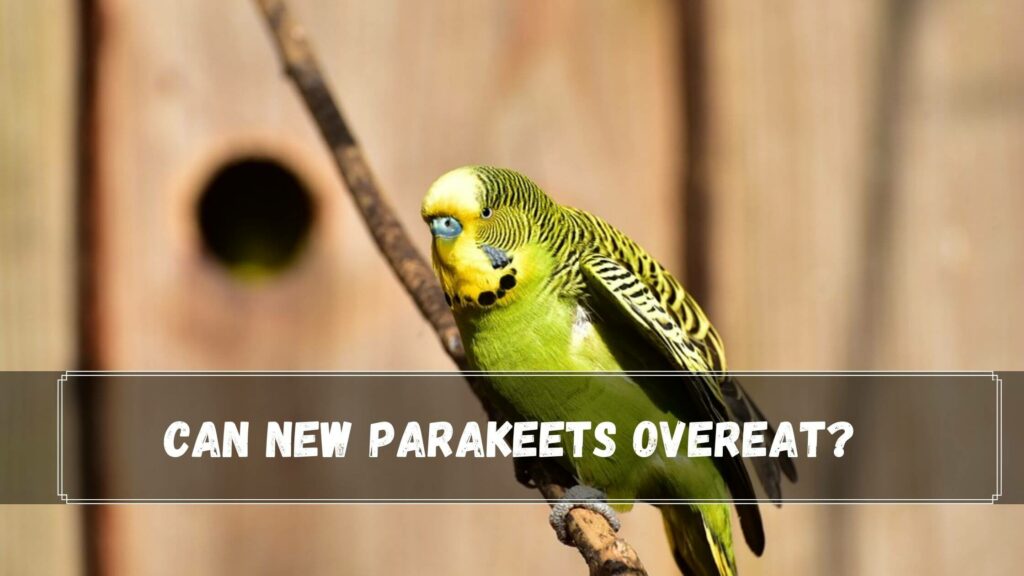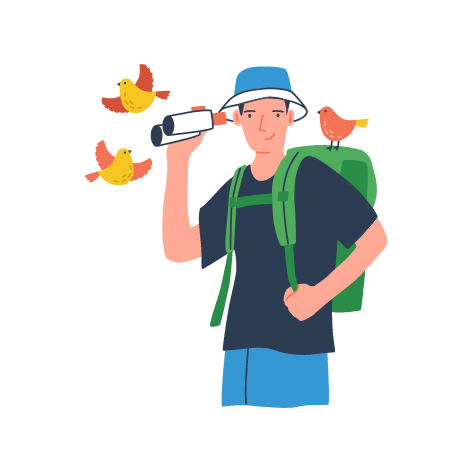
If your pet’s Parakeet suddenly stopped eating without obvious reason, you may be looking for the reason. It doesn’t matter if you have a parakeet or any other smaller bird. All birds of the family must eat a nutritious and varied diet, including water every day, to ensure health, development, and longevity.
When your new bird ceases to drink or eat, and his health begins to decline, it gradually declines, making his body less and less robust. The fact that a new bird is not eating could be a concern to all responsible bird owners. In this article, I will detail the various ways are possible to do to assist your bird get his first bite.
7 Reasons Why Your New Parakeet Not Eating

1. New Parakeets abruptly stop eating their food in the event of an underlying issue.
Any health problem could cause it. Doing nothing to address your pet’s malnutrition could cause a decline in their health. If your Parakeet is young or an infant, you must pay careful focus on their diet.
Parakeets require a diverse diet, including fruits and vegetables. Nuts are a crucial element in meeting their nutritional requirements in addition. In this article, you will learn which nuts are good for parakeets.
Also, here is a list of fruits that parakeets can consume. When you adopt a new pet, it is recommended to have them examined by a vet near you and get the health clearance before taking the pet to your home.
If you observe a parakeet ceases to eat all its food in a sudden period, You must take action quickly to find out what is causing the issue.
2. A new parakeet ceases eating when moved to an unknown location.
The main reason new parakeets eat less is that they suffer from stress from living in a completely new environment. A brand new cage, new equipment, and new surroundings can cause stress.
If you have recently purchased a new home for your Parakeet from the rescue centre or breeder, there’s likely you are the primary of the problem. Be aware that moving the Parakeet to an entirely new environment is an enormous change for the bird. Some birds might consider this as a danger initially.
The good thing is that most parakeets will be able to adjust and settle into their new environment if given a chance. Sometimes, they require time to adapt to the conditions of the environment. Once your pet is at home in its new environment, it will begin drinking and eating normally within several days.
It is important to observe the new bird in the initial 24-48 hours to see the amount of food. If your bird isn’t drinking or eating properly within the first three days, I advise you to bring your pet to the Avian veterinarian.
They are the ideal person to make sure there’s no serious issue present. Also, depending on your pet’s apprehension symptoms, Avina specialists might want to conduct some tests. If you’re not sure what it’ll cost you, this comprehensive information on what vet visits for your Parakeet cost?
3. A new bird will not eat if kept in a small cage.
It is crucial to ensure that your pet is kept in a large cage where they can perch and spread their wings. The cage must also have the proper food bowls and perches, water bottles, and some hides. A new bird in a smaller cage is always a cause for stress, and stressed birds can’t eat or drink as well.
4. Parakeets can be unable to eat when he experiences stomach pain or constipation.
If your bird is sick and experiencing stomach discomfort, he should cease eating for a while. It is advised to handle the problem properly and seek assistance for your pet.
Constipation in a bird is not a good indicator when left untreated for longer than a couple of hours.
5. The Parakeet may also stop eating if their food is boring or unfamiliar.
Parakeets are extremely selective eaters, and if they don’t recognize food, they will never even glance at it. Parakeets won’t eat anything you give them unless they consider it delicious.
If your pet’s Parakeet is bored or isn’t interested in giving a new food item for a pet bird, you should first think about eating your food. I’ve provided a comprehensive guide to making your Parakeet eat the fruits, vegetables, and even your food.
6. A new parakeet also stops eating when intimidated or provoked by prey or cagemates.
If you’ve kept your new bird with your first animal inside the same cage, it could be frightened. If you have a new bird that is different from the original, he may be provoked.
All of this could make your new bird stop eating. This is where you can find out about the kinds of birds that can do with parakeets. If it is scared or agitated by any sudden change, sound, or predator, it will likely stop eating and drinking.
7. New Parakeets cease eating when they’re in a space where they are afraid.
When you place your brand new parakeet in a closed space that isn’t ventilated or has no lighting source, it will cease taking food or drinks. If you purchase a bird located in an area where a lot of noise hinders, remove the cage immediately.
Any location or area that could stress your Parakeet will likely make them feel uneasy and vulnerable. You may also want to consider installing several hiding spots within the cage for your Parakeet.
Can New Parakeets Overeat?

Parakeets can be obese. Most of the time, birds can tell that they are full and stop eating. Giving food or filling up the bowl of your brand new Parakeet isn’t something to worry about. But what is the food more important.
It is best to avoid feeding your bird any fat content. Beware of feeding your birds foods with high fat or sugar. Parakeets are also susceptible to liver diseases. Be sure to select a diet that is not contaminated with preservatives, too.
We have also mentioned several other articles about the parakeet diet. This article will help you understand the best food options for Parakeets. If you’re looking at organic alternatives, here are 15 natural foods for parakeets that can increase their longevity.
Interesting Further Reading
- 15 Best Organic Parakeet Foods in 2022
- 17 Different Types Of Parakeets
- What Vegetables Are Good For Parakeets? In 2022
Conclusion
There are numerous steps you can follow to correct their not drinking or eating. The sight of your new bird not eating may be frightening initially. It is important to be attentive to your bird’s behavior and figure out what might be the cause in the beginning.
It is most likely to happen due to being relocated to a different location. If you cannot get your Parakeet back to eating and drinking as normal following the suggestions above, speak to the Avian veterinarian.

Hi, There and Welcome to BirdsNews.com, is here to help you learn and care about pet birds. and this blog is a journal of everything I’ve learned.
